The BJP accuses the Congress-led Himachal Pradesh government of undermining democratic norms by delaying panchayat and municipal elections, while the ruling side cites disaster recovery as justification.
Shimla | October 11, 2025
The simmering political rivalry in Himachal Pradesh has once again spilled into the open, this time over the postponement of local body elections. The Bharatiya Janata Party (BJP) on Friday accused the Congress-led state government of “eroding democratic traditions” and “fearing the people’s verdict” by delaying both panchayat and urban local body (ULB) polls under what it described as “flimsy excuses.”
The state’s ruling Congress, meanwhile, maintains that recent climate disasters and administrative challenges have rendered immediate elections impractical, insisting that governance and recovery must take precedence over politics.
At stake is more than a procedural calendar — local elections in Himachal often set the tone for assembly narratives, shaping perceptions of governance and leadership across the state’s 12 districts.
The Controversy: Polls Deferred, Politics Deployed
The spark came earlier this week when the State Election Commission (SEC) indicated that local body elections may be deferred beyond the original timeline due to post-monsoon restoration work and “incomplete delimitation exercises.”
The BJP seized upon this as evidence of political interference.
“The Congress government is running scared of the people,” said Leader of Opposition Jairam Thakur, addressing reporters in Shimla. “Disaster recovery cannot be an indefinite alibi to postpone democracy. Panchayats are the soul of Himachal — they deserve elections, not excuses.”
BJP leaders argued that if the state can conduct administrative reviews and political functions, it can also hold local polls under safety protocols.
Congress Defends the Delay
The Congress government, led by Chief Minister Sukhvinder Singh Sukhu, rejected the allegations, citing extensive landslide damage, disrupted infrastructure, and resource constraints as legitimate reasons for delay.
“We are rebuilding hundreds of washed-away roads, bridges, and community centres,” said Rural Development Minister Anirudh Singh. “Our priority is safety and restoration. Conducting elections amid chaos would burden both the administration and the citizens.”
Officials maintain that 70% of panchayat-level offices were affected by this year’s extreme weather events, particularly in Kullu, Mandi, and Kinnaur, which continue to face connectivity issues.
Constitutional Experts Weigh In
Legal experts say the issue is nuanced. Under Article 243E and 243U of the Constitution, local body elections must ordinarily be held every five years, with extensions permitted only under “extraordinary circumstances.”
“Natural calamities or law-and-order breakdowns can justify short deferrals,” said constitutional scholar Prof. P.P. Chauhan of Himachal University. “But repeated or indefinite postponements can invite judicial scrutiny and violate the spirit of decentralised democracy.”
The State Election Commission is constitutionally autonomous but depends on the state for logistical support — a dependency that frequently fuels political sparring.
Ground Sentiment: Governance vs. Representation
In districts like Solan, Chamba, and Una, village representatives express frustration over administrative uncertainty.
“Development funds are frozen because the old panchayat boards’ tenures have ended,” said Sarita Devi, a former pradhan in Solan. “Without elected bodies, local works can’t progress.”
On the other hand, some residents acknowledge the strain on local officials.
“Half our roads are still blocked,” said Ramesh Negi from Kullu. “If officials are out restoring bridges, how will they manage polling logistics?”
The issue has become a grassroots debate on governance versus representation — whether the state should first heal or first hold polls.
Political Stakes: Local Polls as Semi-Finals
In Himachal, panchayat and urban body elections serve as bellwethers ahead of larger political battles. They test cadre strength, leadership credibility, and micro-level satisfaction.
The Congress had swept urban bodies in 2022 after an aggressive local campaign, while the BJP dominated several panchayats in the 2021 cycle.
This round, both parties see the polls as crucial to setting the stage for 2027 Assembly Elections.
“Local polls decide narrative ownership,” said political scientist Dr. Meena Kapoor. “Whichever party controls village-level chatter usually controls the mood of the next assembly.”
BJP’s Allegations: Democracy “Under Delay”
The BJP has framed the delay as a moral issue rather than an administrative one.
State BJP President Rajeev Bindal alleged that the Congress “fears exposure” of governance lapses.
“Every gram sabha will question where the relief money went,” Bindal said. “That’s why they’re buying time.”
The BJP plans to launch a statewide ‘Loktantra Bachao Abhiyan’ (Save Democracy Campaign), including rallies and petitions demanding the announcement of election dates.
“We will take this to the Governor if needed,” said Bindal, adding that “Himachal’s democracy cannot be suspended at will.”
Congress Counterattack: “Politics Amid Pain”
The Congress leadership has responded with equal intensity, accusing the BJP of “weaponizing human suffering.”
“We inherited disaster, not dysfunction,” retorted Chief Minister Sukhu. “Our focus is on rebuilding, not rhetoric. The BJP’s obsession with polls shows insensitivity to ground realities.”
The government has reportedly allocated ₹480 crore for disaster rehabilitation, including panchayat infrastructure repairs. Officials insist elections will be conducted “as soon as feasible” and not delayed beyond constitutional limits.
The SEC’s Balancing Act
Caught between political pressure and logistical hurdles, the State Election Commission has reiterated its independence.
“The Commission will announce schedules once ground reports confirm readiness,” said State Election Commissioner C.P. Verma. “Our mandate is to ensure safe, inclusive, and credible polls.”
Verma also clarified that voter list revisions and ward delimitation processes are still ongoing, delayed by district-level disruptions.
The Legal Lens: What Courts Have Said Before
Past court rulings emphasize the mandatory nature of timely local elections.
In 2022, the Supreme Court had observed in Kishan Singh Tomar vs Municipal Corporation of Ahmedabad that:
“The constitutional mandate for regular elections cannot be undermined by administrative lethargy or political convenience.”
However, courts have also recognized genuine natural disasters as valid grounds for limited deferment — provided the state transparently communicates timelines.
Legal circles in Shimla expect public interest litigations (PILs) if the delay extends beyond early 2026.
The Administrative View
District officials, speaking anonymously, confirm the scale of logistical challenges.
Many polling booths were damaged or rendered inaccessible during monsoon-triggered landslides.
“Transporting EVMs to high-altitude polling stations is a multi-day task,” said an officer in Lahaul-Spiti. “Our priority is restoring connectivity first.”
Still, the same officers acknowledge that prolonged uncertainty can stall rural governance.
“Development projects await panchayat resolutions — the absence of elected bodies slows decision-making.”
Experts on Political Optics
Observers note that both sides are shaping narratives for electoral gain.
- BJP’s Narrative: “Congress is afraid of facing the people.”
- Congress’s Counter: “BJP is insensitive to disaster victims.”
“It’s classic hill-state politics,” explained veteran journalist Ashwini Sharma. “Every landslide has two versions — administrative and political.”
He added that the battle is more about optics than outcomes, since the election will ultimately be held under SEC oversight.
Impact on Rural Economy
The absence of elected panchayats affects disbursement of funds under MGNREGA, Pradhan Mantri Awas Yojana, and Swachh Bharat Mission.
Local contractors and women’s self-help groups report delays in payments and project approvals.
“Without elected signatures, files just sit,” said Kamla Devi, a ward member from Hamirpur. “The poor lose most when politics plays waiting games.”
Economists warn that rural liquidity could tighten further if the situation prolongs.
Historical Precedent: Poll Postponements in the Hills
Himachal has witnessed poll delays before — notably after the 2013 floods and during the 2020 pandemic. In both cases, the SEC postponed elections by 3–4 months.
However, the present situation is different, say analysts, as administrative recovery is slower and political polarization sharper.
“Earlier, both parties cooperated on disaster management,” said Dr. Rajender Negi, a historian. “This time, cooperation has been replaced by confrontation.”
The Role of Women and Youth
Women comprise over 48% of the electorate in Himachal and have historically turned out in higher proportions than men. Local body polls are significant for them — over 50% of seats are reserved for women candidates.
“For women, panchayats are empowerment platforms,” said activist Kiran Thakur. “Delaying them delays representation.”
Young voters, especially in semi-urban areas like Dharamshala and Solan, are also voicing impatience. Online petitions have surfaced demanding a fixed timeline for local polls, independent of political changes.
National Implications
The dispute in Himachal carries broader political undertones. With multiple states going to polls this year, national parties are testing narratives of accountability and decentralization.
BJP strategists believe highlighting “Congress’s delay in democracy” fits into their broader theme of governance efficiency.
Conversely, the Congress is positioning itself as a “humane government” prioritizing relief over rhetoric — an image it may leverage in other hill and northeastern states.
ECI’s Monitoring Role
While state election commissions manage local polls, the Election Commission of India has begun monitoring readiness indicators.
Sources confirmed that the Chief Election Commissioner has sought a “status report” from the Himachal SEC on booth repairs, voter list finalization, and personnel availability.
The ECI could step in with guidance or observation teams if political heat escalates.
“We’re tracking developments,” an ECI official said. “The aim is to uphold electoral integrity, not interfere in local jurisdiction.”
The Opposition Landscape
Beyond the BJP and Congress, smaller parties and independents are preparing to exploit the delay debate.
The Aam Aadmi Party (AAP), though not yet a strong player in Himachal, is planning to field candidates in select urban wards, emphasizing governance transparency.
“If the two giants fight, we will talk about solutions,” said AAP spokesperson Nisha Chauhan.
Civil Society Reactions
Civic groups, including the Himachal Lok Abhiyan and Transparency Collective, have urged both major parties to depoliticize the issue.
“Elections are not favors from the state; they’re citizens’ rights,” the groups said in a joint statement. “Let democracy not become collateral damage in political blame games.”
Possible Scenarios Ahead
- Short Postponement (Likely): Polls held by March 2026 after reconstruction and delimitation.
- Prolonged Delay (Controversial): Could invite court cases or ECI intervention.
- Partial Polls: Urban and rural phases conducted separately.
Each scenario carries political consequences for both alliances — shaping momentum for future assembly races.
Conclusion: Democracy on the Hillside
As winter approaches and snow clouds gather over the Himalayas, Himachal’s political climate remains far from cool. The BJP continues to thunder against what it calls “democracy on pause,” while the Congress insists “democracy requires stability, not haste.”
Between accusation and administration lies the common voter — waiting for roads to be rebuilt, funds to be released, and ballot boxes to return.
The coming weeks will decide not only when the polls are held but how Himachal balances compassion with constitutional duty.
“Every democracy faces a test,” said journalist Anita Rawat. “Himachal’s test is whether politics can rise above its landslides.”
#HimachalPradesh #LocalBodyPolls #BJP #Congress #Democracy #Elections #Politics #Governance #SarhindTimes
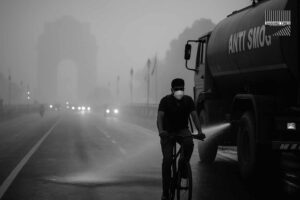
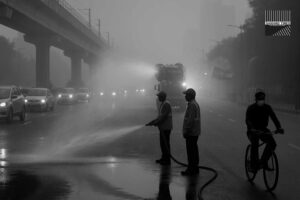


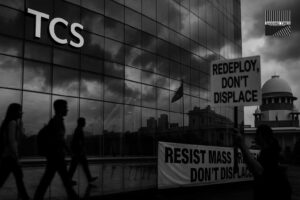


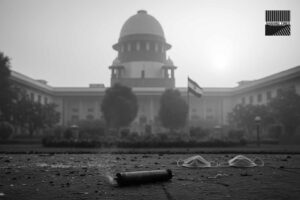



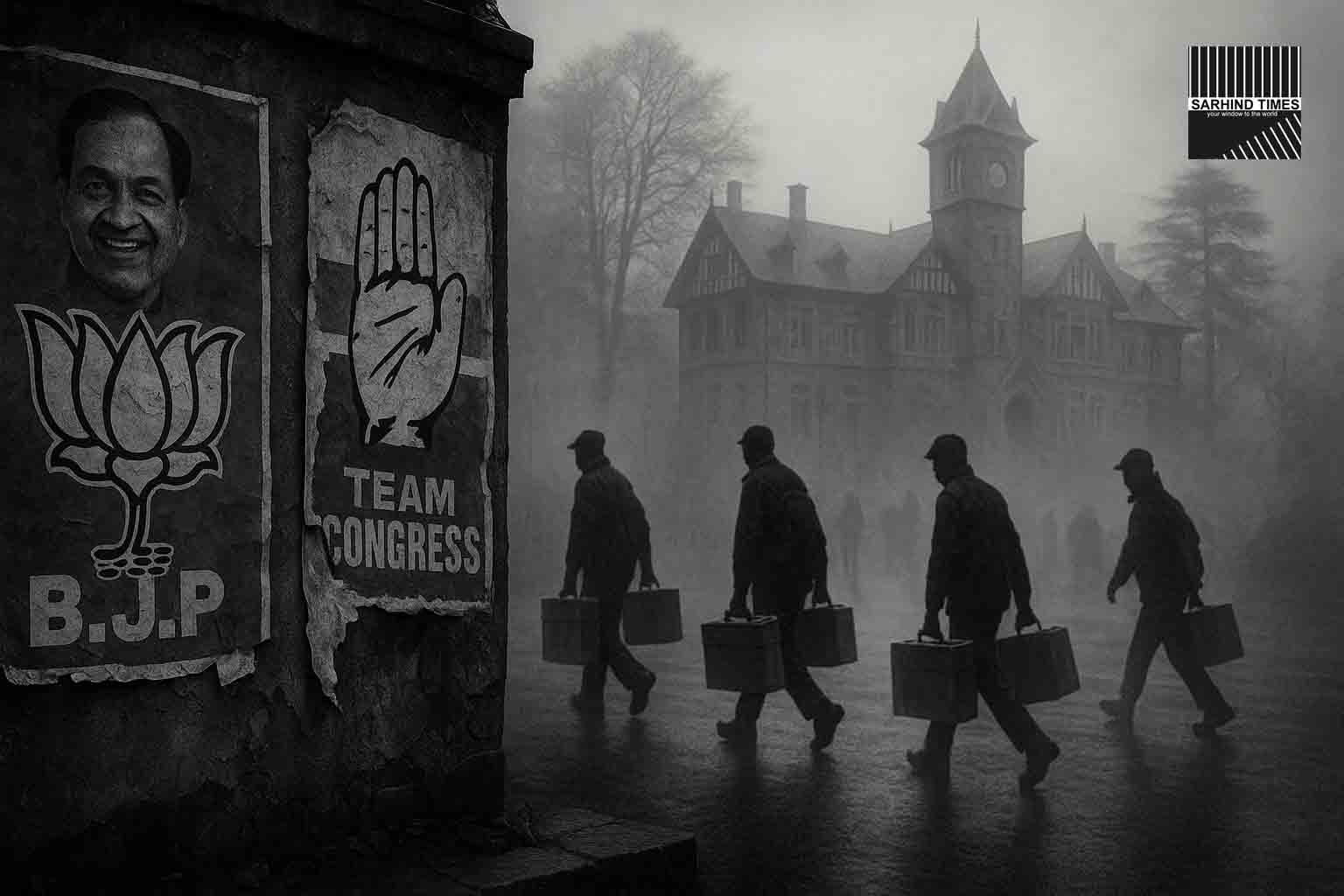
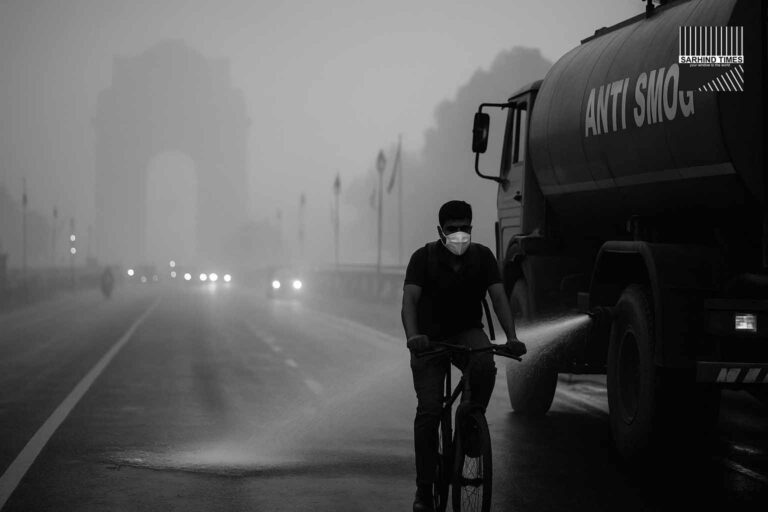
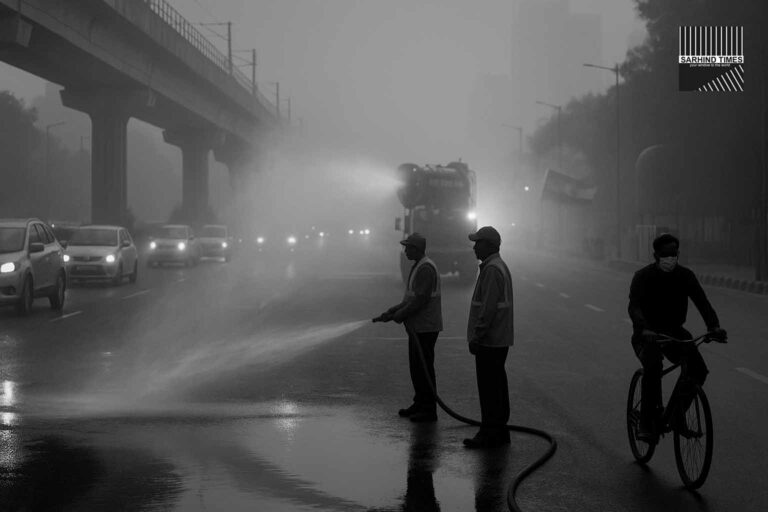
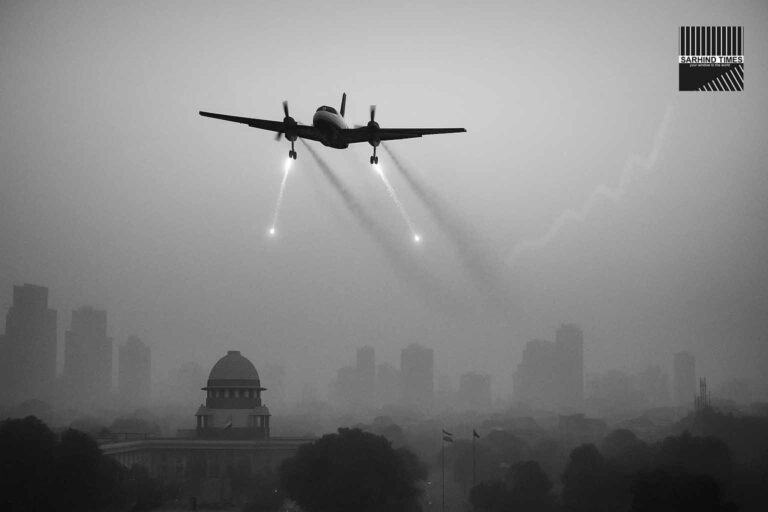

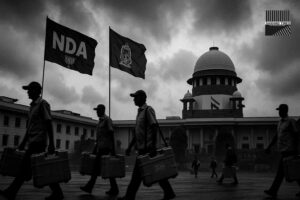
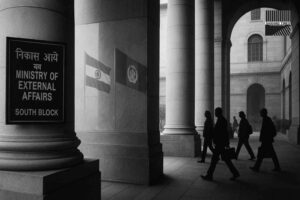

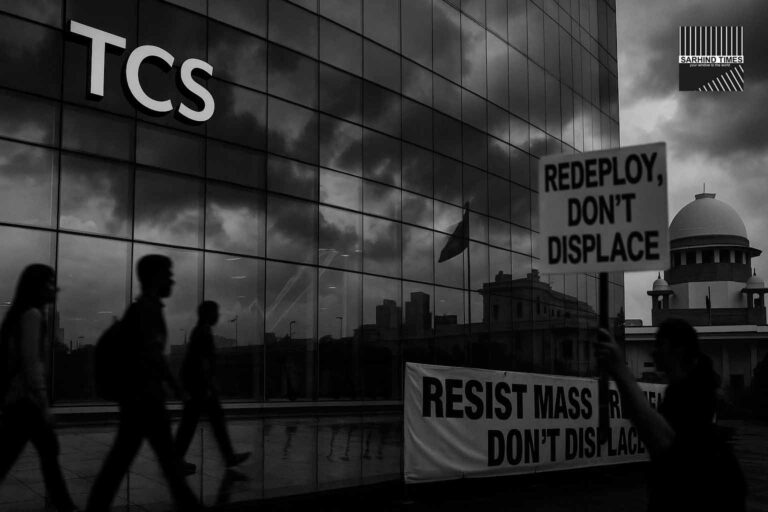
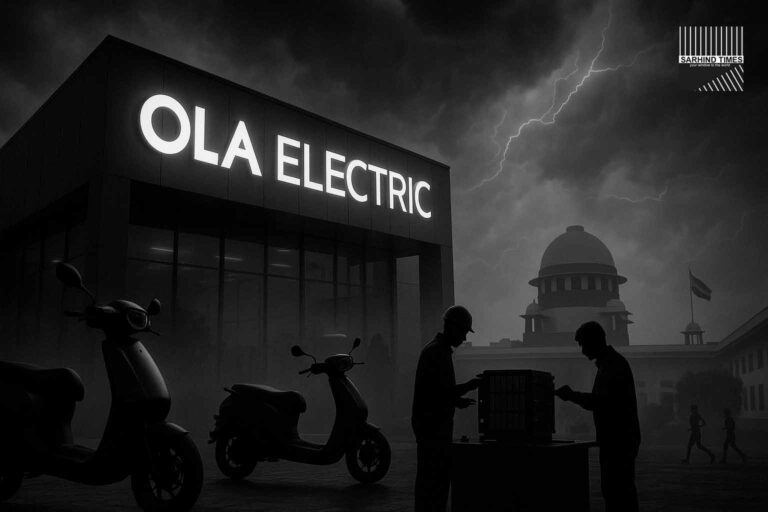
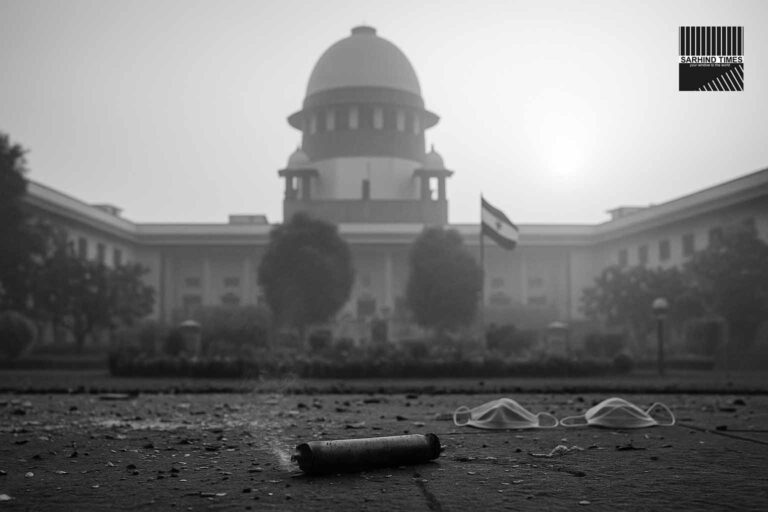
+ There are no comments
Add yours